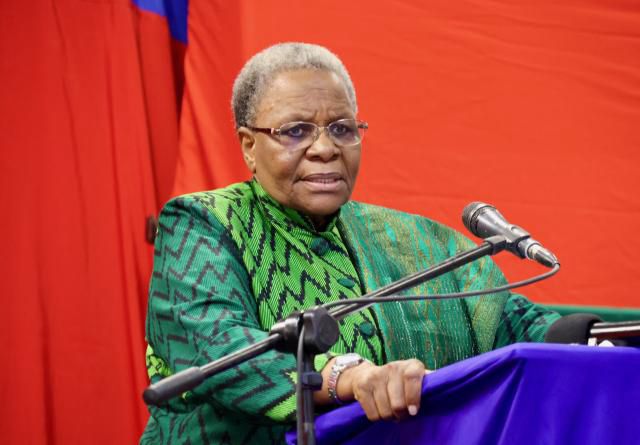As Namibia joins in celebrating World Accreditation Day, the country recognises that accreditation as pivotal to its economic development.
According to a statement issued by the Ministry of Industrialisation and Trade, World Accreditation Day, which is celebrated worldwide on 9 June, will highlight how accreditation and accredited conformity assessment activities support ongoing global supply chain restrictions which continue to be a source of trade normalisation as organisations seek new markets and investment opportunities.
This year’s theme, ‘Accreditation: Supporting the Future for Global Trade’, also focuses on how accreditation supports nine of the 17 United Nations Sustainable Development Goals (SDGs).
“The SDGs are the cornerstone of the 2030 Agenda for Sustainable Development of the United Nations that seek to guide all global, regional and national development endeavours,” the statement reads.
The Organisation for Economic Cooperation and Development and the United States department of commerce estimate that standards and related conformity assessment have an impact on 80% of the world’s trade.
According to the trade ministry, accreditation plays a pivotal role in supporting global trade by removing the technical barriers to trade.
“Quality infrastructure provides businesses with access to a wider international marketplace, as well as improves the quality and safety of imports from those economies,” the statement says.
According to the ministry, the Southern African Development Community Accreditation Service (Sadcas) is a multi-economy accreditation body that ensures conformity assessment service providers operating in SADC member states which do not have national accreditation bodies.
Each country has its own accreditation body, but considering the cost of establishing and sustaining such a body, and further taking into account the limited financial and human resources, the SADC region established one body that caters for the accreditation needs of Angola, Botswana, Comoros, the Democratic Republic of Congo (DRC), Eswatini, Lesotho, Madagascar, Malawi, Mozambique, Namibia, Seychelles, Tanzania, Zambia and Zimbabwe.
It further provides accreditation services to organisations which perform calibration and testing, including medical testing, inspection, certification and those that provide legal metrology services, against international standards.
Namibia has been progressing well since the implementation of its first National Quality Policy of 1999.
The notable achievements under this policy are the establishment of the Namibian Standards Institution in 2008 as the national standards body, the implementation of legal and trade measurement controls, and the establishment of some testing and certification capacities.
With these accomplishments, Namibia has revised and launched its Revised National Quality Policy for 2020 to 2025, which has been built on the successes of the previous policy.
Namibia does not have an accreditation body, therefore the ministry serves as the national accreditation focal point and as a link between Sadcas and its clients or potential clients.
– email: matthew@namibian.com.na
Stay informed with The Namibian – your source for credible journalism. Get in-depth reporting and opinions for
only N$85 a month. Invest in journalism, invest in democracy –
Subscribe Now!










